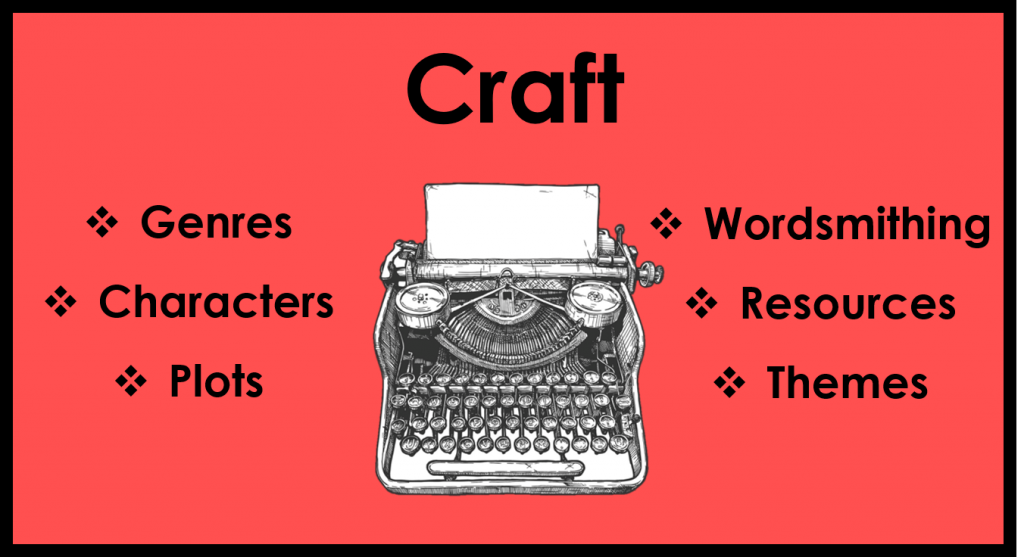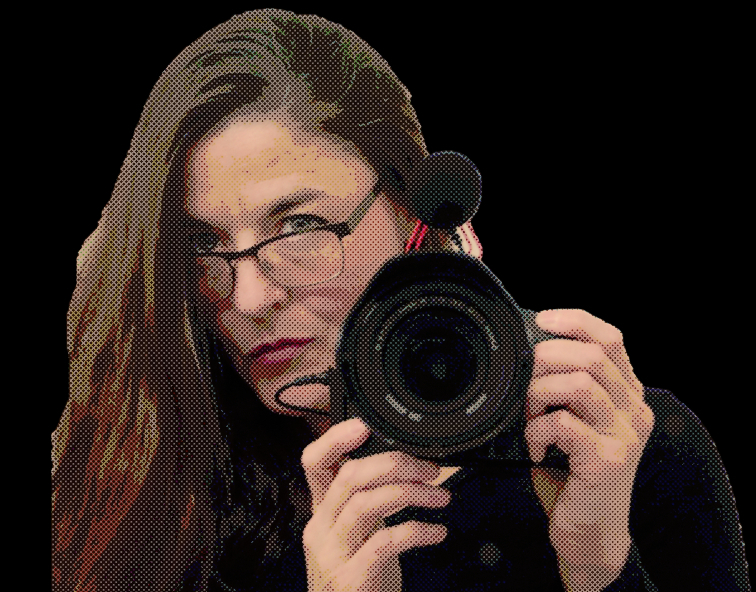

The Most Misunderstood “Rules” of Writing, Part 1: Show, Don’t Tell
I’m generally of a mind that rules are lame. You don’t know how much trouble I’ve ended up in because of this attitude, being a military member and all. Example:
Me: Why can’t I put my hands in the pockets of my uniform? It’s winter and it’s cold.
Severe-Looking Instructor: Because it’s unprofessional.
Me: Frostbite is also unprofessional.
Severe-Looking Instructor: Drop and give me twenty…[keep reading]

The Most Misunderstood “Rules” of Writing, Part 2: Grammatical Correctness
I used to wonder what was more important—wordsmithing or storytelling. This was when I was on my O. Henry Prize kick, reading dozens of beautifully written short stories that received high praise despite lacking plots or any deep meaning (to me, anyway). As a result, for a while I believed wordsmithing was more important and focused a lot on improving my prose. Then I realized short stories were a career dead end and began focusing on novels, where I came to the opposite conclusion…[keep reading]

5 Ways to Tell If You’re a Natural Writer
Like most endeavors in this thing we call life, how good you are at something depends on a combination of natural skill and drive to improve. Notice I said how good you are at something, not how successful you are, because success depends a lot on luck…more than most successful people are willing to admit. If you’re good at something, it increases your odds of success, but you can still suck at something and be successful at it…[keep reading]

How to Use Fiction to Tell the Truth
What if I told you the best fiction was all about telling the truth?
“But Shana, it’s fiction!” you might respond. “It’s not real! How is my erotic paranormal romance about shapeshifting unicorns supposed to tell the truth about anything?”
Well, let me explain…BTW, if YOU have written an erotic paranormal romance about shapeshifting unicorns, PLEASE SEND ME THE BUY LINK ASAP…[keep reading]

How The Rise of Skywalker Will End
[Note: this post contains speculation, but no spoilers]
Hope y’all had an awesome Thanksgiving! Here’s an early Christmas present for you:
Want to know how the upcoming final chapter in the latest Star Wars movie trilogy will end? I’ll tell you!…[keep reading]

The Rise of Skywalker’s Critical Flaw: What Happens When You Mistake a Motif for a Theme
[Spoilers follow, but come on—who hasn’t seen this movie by now?]
So right about a year ago, I speculated on how The Rise of Skywalker would end based on the themes established in The Last Jedi. Something like Rey becoming her own person and Kylo Ren coming to peace with his light and dark sides. That’s sort of what happened, but anyone could have guessed that based on how all Star Wars movies usually go…[keep reading]

Baking Literary Bread, Part 1: The Basic Ingredients Every Story Must Have To Succeed
Everybody who’s ever attempted to bake a delicious loaf of bread from scratch knows firsthand the endeavor is part art, part science. The delicate balance of flavors and textures—that’s art. Ensuring the loaf doesn’t dissolve into a puddle of goo—that’s science. There are an infinite number of different kinds of bread you can bake—banana, zucchini, raisin nut, marble wheat, etc.—but they all have certain ingredients in common—flour, baking soda, salt, water—and require a certain order of preparation—mix ingredients, bake, let cool. Without the right ingredients in specific quantities and in the proper order, you end up with the aforementioned inedible goo…[keep reading]

Baking Literary Bread, Part 2: The Right Recipe For Success
In my last column, I talked about the critical ingredients to craft a coherent story. You might recall my genius bread-baking metaphor: like a story, there are an infinite number of different kinds of bread you can bake, but all loaves of bread have certain ingredients in common that make it bread rather than cake or pizza. However, just knowing what ingredients to put in isn’t enough. You also need to know the ratio of each, and the order in which they should be added…[read more]

Baking Literary Bread, Part 3: How To Solve Common Story Problems Using the Recipe
Last time, we discussed the correct order and ratio of all the necessary ingredients for a successful story: hook (page 1) -> inciting incident (anytime before plot point 1) -> plot point 1 (PP1; 20-25% mark) -> midpoint (50% mark) -> plot point 2 (PP2; 75% mark) -> climax/denoument (last 90%).
Knowing the correct order and ratio can solve a lot of issues with a manuscript that readers complain about but authors may have a hard time interpreting. Here are a few ambiguous but common problems decoded into their meaning and solution…[keep reading]

Breaking Down What a Story Actually Is…And What It Isn’t
No writing workshop is complete without a definition of a story explained to the audience of aspiring authors. They come in flavors from simple to complicated, though I prefer the simple ones.
A plot is not a story! A plot is a series of events that forms an overarching narrative with a beginning, middle, and end. A plot is stuff that happens. A story is stuff that happens for a reason, which is provided by the characters. At its very basic elements, a story is “plot plus characters.”…[keep reading]

Another Way to Tell a Story: Sociological Versus Psychological Storytelling
On the occasion of the largest pandemic in a century, you might’ve watched or re-watched Contagion, a star-studded 2011 movie directed by Steven Soderbergh about a deadly virus originating from China that sweeps the globe. The film is currently having a renaissance on Netflix due to its striking similarities to real-world events, though its more cerebral and realistic take on a world-wide pandemic resigned it to an underwhelming box office haul upon its originally release in theaters…[keep reading]

The Problem With Star Trek: Discovery
As you probably know, I’m a huge Trekkie. Star Trek: The Next Generation (TNG) is one of my favorite series of all time. The TNG series finale is DEFINITELY my favorite series finale of all time—I dare you not to cry when the main cast all sit down to play poker for the last time! I’ve been lukewarm about the Star Trek series that came after—Voyager, Deep Space Nine, Enterprise—but I’m still in love with the Star Trek universe overall and its science-heavy storylines and themes of hope. So I was super excited when they announced a new Star Trek series, Star Trek: Discovery. I even subscribed to CBS All Access so I could watch it!
And I was super into it! …For a while. But something about it felt…off…[keep reading]

3 Reasons Why You Should Never Skip the Inciting Incident
Maybe I’ve been cursed by the book gods and need to sacrifice another virgin at the secret blood altar they keep in my local library’s basement (all the best libraries have one), but I’ve had crap luck with books lately. I’ve DNF’d the last four out of five books I’ve read, primarily for story mechanics issues. They’ve either dragged or didn’t establish a solid foundation before jumping into the action, or just weren’t very compelling stories. I’m a slow-as-shit reader, so slogging through a book I’m not that into can take weeks to reach the payoff of a “meh” experience. If a book doesn’t hook me within the first ~30%, I peace out and move on…[keep reading]

3 Easy Steps to Write a Compelling Villain
Crack open any Storytelling 101 book and it’ll tell you conflict is your story’s engine. Every story since the history of forever has centered around someone trying to solve a problem; otherwise, it’s not a story so much as a series of anecdotes, or an aside, or your drunk uncle’s ramblings.
Stories which lack a strong central conflict feel weak or meandering…[keep reading]

How to Create “Real” Characters
Characters in your heard are not real people, no matter what a platitude typed in Corsiva font scrolled across a picture of a quill tells you. They are not people, and they don’t do anything you don’t make them do. To think otherwise is to have a fundamental break with reality, and please see your doctor to adjust your medication dosage accordingly…[keep reading]

The Only Thing You Really Need To Know About Your Characters
Please don’t tell me you’ve got a binder or notebook stuffed with pictures you found on the Internet of what your main characters look like, along with facts about them like their favorite color, the first song they danced to, their ideal vacation spot, etc. I mean, you can do that if you’re bored…okay I did that on my website as part of a promotion for my book Reckoning. But don’t mistake this for character development, because it’s not…[keep reading]

Prelude to Understanding Genres, and Why You Need to Pick ONE, Dammit
Let me start off this overview of genres by stating the most important point up front: if your goal is to write a book you’d like to be commercially successful, then you MUST PICK A GENRE! I can’t emphasize this enough…[keep reading]

Overview of All the Genres, and Which One is Right for You
Continuing from my last post on genres, I’ll now describe each major literary genre, its universal tropes, and if it’s right for you.
…Seriously, read my last post as a primer! TL;DR: you must pick a genre for your story. …But which one?? Keep reading to find out! [keep reading]

Why Popular Romance Novels Aren’t Made Into Movies
Why aren’t romance novels adapted into movies or TV shows more often? Aside from Hallmark channel movies, Fifty Shades of Grey, and the relatively recent Starz hit Outlander, a big-screen romance based on a book is a rare breed…with the notable exception of teen rom-coms on Netflix, cuz kids eat that shit up. But if romance is the biggest-selling book genre, and best-selling books are hot Hollywood commodities due to their built-in audiences, then why aren’t there more of them? [keep reading]

Good Books To Read If You Wanna Be a (Better) Writer
Writers are always giving out advice on how to write, assuming for some reason that people care. I mean, you don’t see doctors prattling on to whoever will listen about the best ways to reset a bone or writing blog posts about identifying infectious diseases.
Maybe writing is unique in the sense it seems like something everyone should be capable of doing. With some sad exceptions, everybody is literate, everybody’s got “What if…?” story ideas, and everybody can tell a good story from a bad one. And yet only a tiny handful of people can sit down and complete a coherent story; even fewer a GOOD coherent story…[keep reading]

Screenwriting Versus Novel-Writing
Throughout my blog posts, I often use examples from novels, TV shows, and movies. Some of the resources I cite for aspiring authors are actually screenwriting guides. Yet this website is supposed to be offering advice on writing books, not screenplays or teleplays. So why do I use non-book examples? [keep reading]
